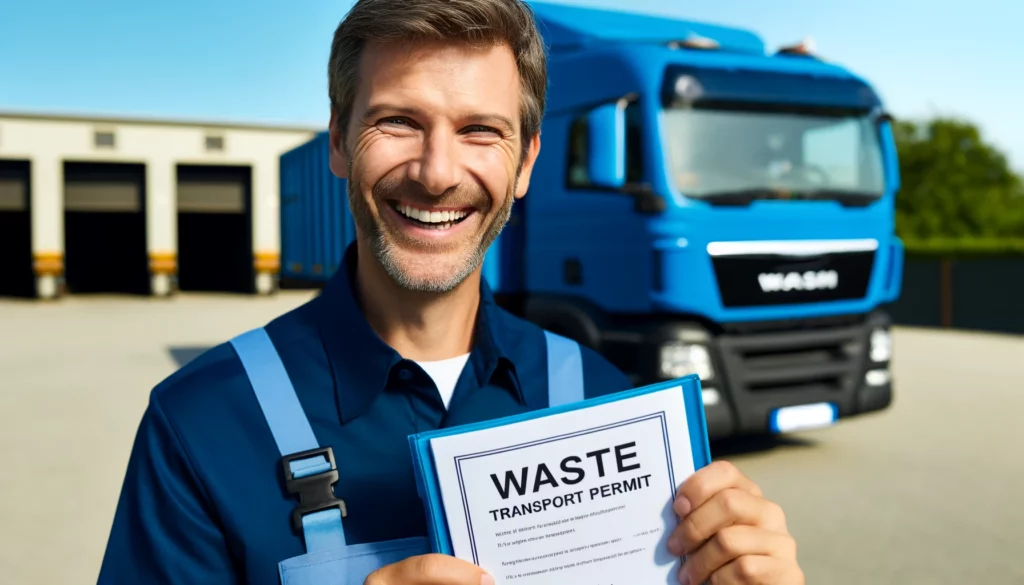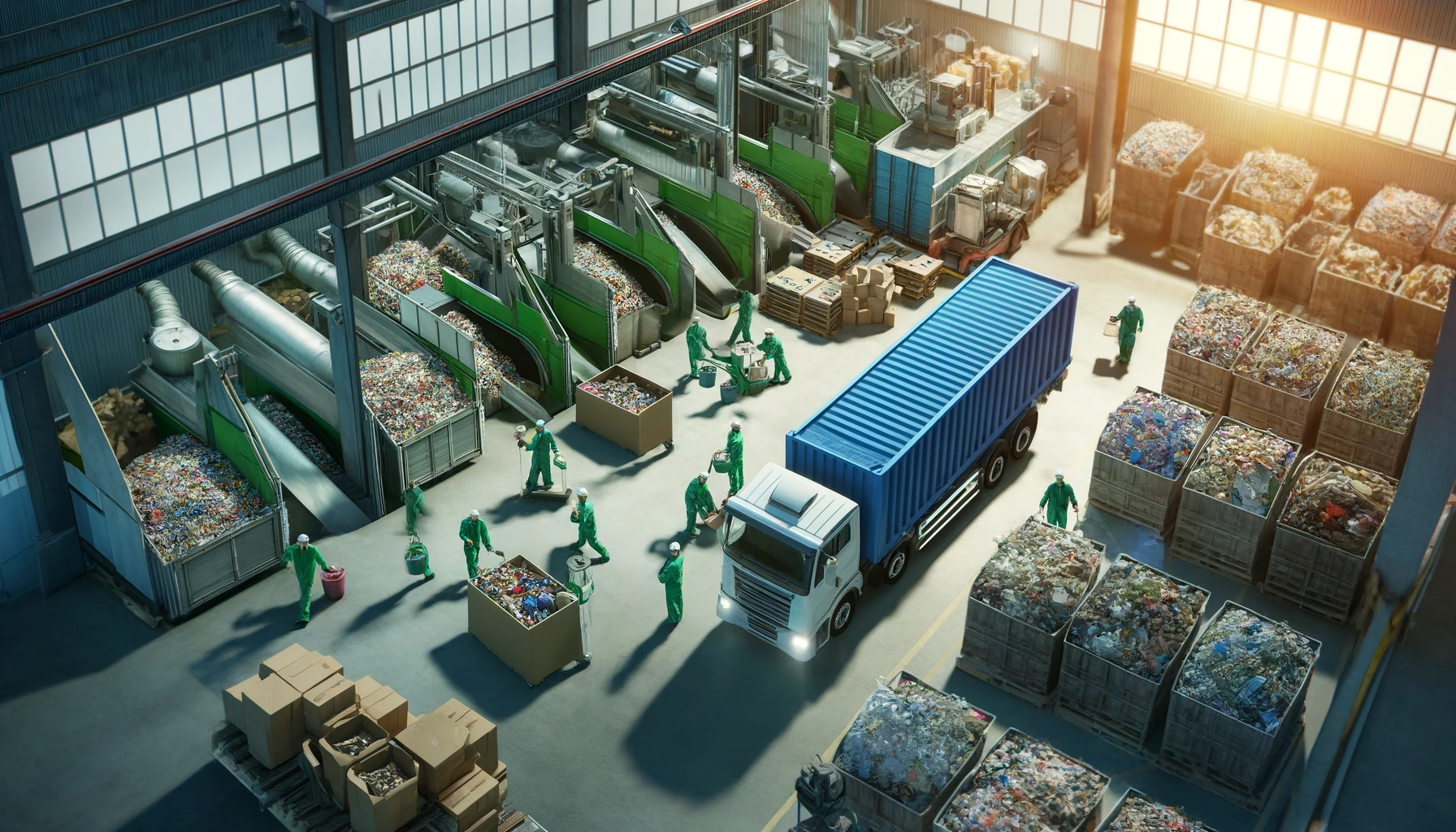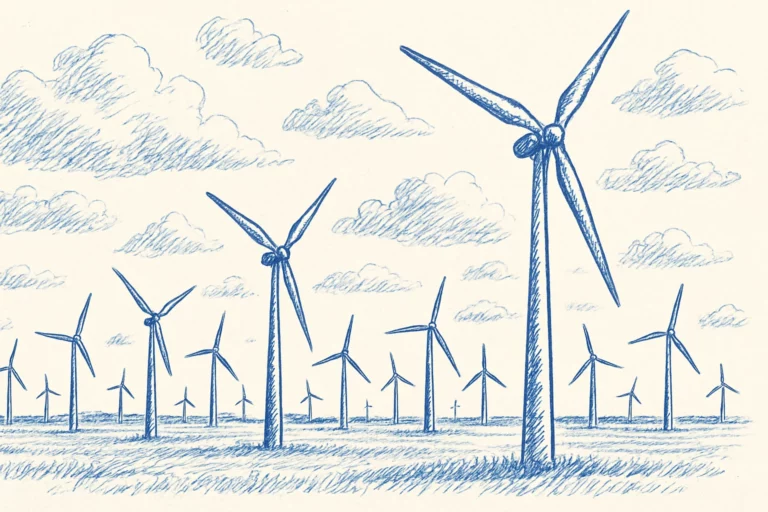Why the waste transport in Europe is so important
The transportation of waste in Europe is vital for efficient management and recycling of materials. It promotes environmental sustainability and economic efficiency. As societies push towards more sustainable practices, the synergy between the transport and waste management industries grows more crucial. This article explores the importance of the waste shipment sector, provides operational statistics, and discusses future prospects for those involved in this key industry.
Do you want to know more about waste transport permits? Contact us:
office@wastetransportsolutions.eu
Importance of waste transport in waste management
The strong link between waste transport and waste management industries is clear. Effective transport is essential for successful waste management, as it moves waste from surplus areas to places where it can be treated and reused. This cooperation not only ensures efficient waste removal but also optimizes resource recovery and minimizes environmental harm.
Transport companies collaborate closely with waste management firms to craft logistic strategies that optimize routes and timing for waste collection and delivery. This coordination reduces the carbon footprint of operations and boosts recycling efficiency. The use of advanced technologies like GPS tracking and route optimization software also helps make waste transport as efficient and sustainable as possible.
Waste management in Europe – statistics
In Europe, waste management has evolved into a sophisticated industry that leverages technological advancements and stringent regulations to enhance sustainability. Annually, the European Union generates over 2.5 billion tons of waste. A significant portion includes municipal, industrial, and construction waste. The treatment of this waste involves a variety of processes including recycling, biological treatment, and energy recovery, with recycling rates steadily improving, currently standing at around 45% for municipal waste.
Countries like Germany lead in recycling efforts, boasting rates upwards of 60%. This impressive feat is facilitated by robust waste transport networks that ensure efficient material movement from cities to recycling centers. Such statistics highlight the critical nature of transport in the overarching process of waste management, enabling countries to handle waste more effectively and sustainably.
Waste shipment in Europe – statistics
The logistics of waste transport in Europe are intricate due to the variety of waste types and differing regulations across countries. Germany, France, and the Netherlands play key roles in both exporting and importing waste, thanks to their sophisticated waste management systems. For example, Germany annually exports about 11 million tons of waste, mostly to nearby countries for recycling and recovery.
The internal transport of waste within countries is equally significant. The European Environment Agency reports that millions of tons of waste are transported annually between regions, reflecting a highly dynamic sector that adapts to the ever-changing landscapes of waste production and treatment capacities. The strategic movement of waste not only supports recycling and disposal but also contributes to the economic viability of the waste management industry.

Waste transport permit – privilege or necessity?
Securing a waste transport permit is crucial for any company aiming to effectively and legally navigate the waste management industry. This permit ensures that a company complies with strict environmental laws and positions it to seize new opportunities in this evolving sector. It allows businesses to broaden and diversify their services, including transporting various waste types.
Such expansion is vital in an industry where being adaptable significantly boosts a company’s competitive edge and operational reach. Additionally, operating within the legal bounds enhances a company’s reputation and trustworthiness with clients and partners, reinforcing its dedication to sustainable and responsible waste management practices.
Future of waste shipment
Looking ahead, the waste transport industry in Europe is on the brink of significant changes. These changes will be driven by technological advancements, regulatory updates, and a rise in environmental awareness. We expect the inclusion of electric and autonomous vehicles in transport fleets. This shift will cut greenhouse gas emissions and boost operational efficiency.
Additionally, the ongoing expansion of the European Circular Economy Package will enhance the integration of waste generation, transport, and processing. This integration demands more advanced and efficient transport solutions. As a result, new job opportunities and areas for innovation will emerge within the industry. This makes the field increasingly attractive to both newcomers and investors.







